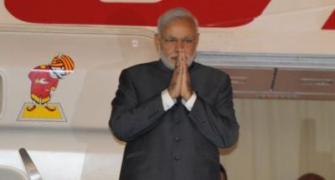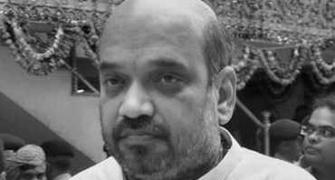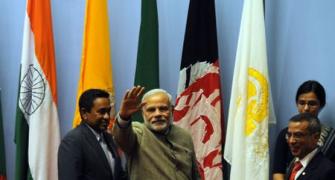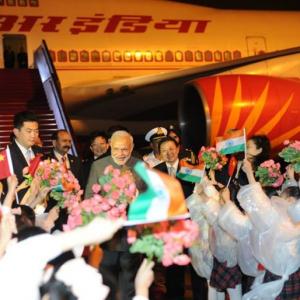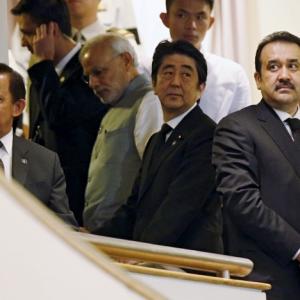It's a packed 5-nation, 9-day, visit for Prime Minister Modi as he heads to Uzbekistan, Kazakhstan, Kyrgyzstan, Turkmenistan and Tajikistan, apart from Ufa in Russia.
This visit may be short on glitz, but high on substance, reports Sheela Bhatt/Rediff.com
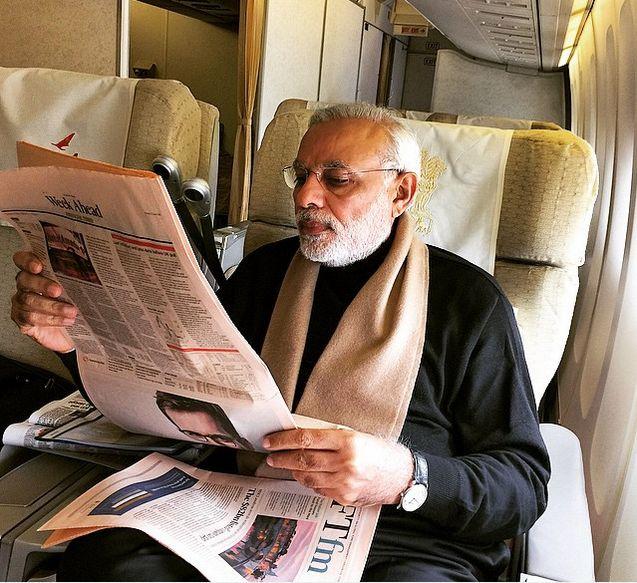
Starting Monday, July 6, in the middle of the Muslim holy month of Ramzan, Prime Minister Narendra Modi will visit five Central Asian countries that follow the moderate Hanafi school of Islam.
Modi is also scheduled to attend the BRICS (the grouping of Brazil, Russia, India, China and South Africa) and Shanghai Cooperation Organisation summits in the Russian city of Ufa from July 9 to 10, making it the first time an Indian prime minister will attend the SCO meet.
Before arriving in Ufa, Modi will visit Tashkent, the Uzbekistan capital, and Astana, the capital of Kazakhstan.
After his engagement in Russia, Modi will visit Bishkek, Ashgabat and Dushanbe, the capitals of Kyrgyzstan, Turkmenistan and Tajikistan respectively.
Tajikistan shares a border with Pakistan occupied Kashmir which India considers its territory. India spent $70 million to built a military air base at Ayni in Tajikistan, but could not deploy fighter aircraft there under Russian pressure.
India has at last shown a sense of urgency to connect with these countries, say Indian diplomats involved in the region.
While negotiating energy security and mineral resources, Modi will carry with him India's soft power in the form of music, arts, Bollywood films and television serials (Balika Vadhu is a current favourite in the region) to offer, along with the lure of the huge Indian market.
As and when the Chabahar port in Iran starts functioning full steam, India expects the two-way traffic with the Central Asian republics to multiply manifold.
Modi, who has a penchant for aggressively marketing his foreign tours with a flourish on television and social media, will make this six-country visit a high-profile one.
At the SCO summit in Russia, where Pakistan and India are likely to become member countries (currently, both nations have observer status), Modi will have an opportunity to meet his Pakistan counterpart Nawaz Sharif, whom he has kept in touch with regularly in recent months.
India and China are also likely to discuss bilateral issues on the sidelines at Ufa.
On Modi's latest visit overseas, brace yourself to hear about all kinds of wonderful Central Asian linkages with India from the leaders of the host countries and the Indian prime minister.
Modi's visit to Central Asia, which are intertwined with Indian history and folklore due to the spread of Buddhism and then, Islam, many centuries ago, is taking place at a time when the region is undergoing a transformation.
India is a latecomer to Central Asia, a region where China has made deep inroads. With $46 billion of trade in 2014, Beijing is the biggest trading partner for four of the region's five countries.
For political influence in the Central Asian republics there is, of course, none to match Russia. Until 1991 these countries were part of the erstwhile Soviet Union. Most of these republics have a large Russian population, more skilled than the natives.
Interestingly, Russia has sought Pakistan's help in dealing with Central Asia, especially the worrying rise of Islamic fundamentalism in these republics.
But Russia has a serious challenger for influence in China.
China has settled boundary issues with Kyrgyzstan, Tajikistan and Kazakhstan, and its economic presence is clearly growing at Russia's expense.
Beijing has no qualms about the absence of democracy in the Central Asian republics which are ruled by dictators who win managed election after managed election.
Modi's journey to these countries is very different from his previous visits abroad. These nations are not located in India's immediate neighbourhood like Bhutan and Nepal nor are they Indian Ocean States like the Maldives. They are not rich or powerful as America, Japan, China, South Korea and Australia which Modi visited in the last year. Kyrgyzstan and Tajikistan, in fact, are atop the list of least developing countries.
Badakhshan, a province on the Afghan-Tajikistan border, is witnessing the spread of conservative Salafi Islam, about which Russia, China and India are concerned. The three nations confront tensions over NATO troops's imminent withdrawal from Afghanistan and how Badakhshani elements will react in that aftermath is not easy to gauge.
Plus, the idea of Islamic State is spreading in parts of Central Asia. Since Pushtu-speaking Tajikistan stretches into Afghanistan, India has cause to be concerned.
This is essentially a strategic visit to countries on the ancient Silk Route which China is ambitiously reviving as the Silk Road Economic Belt under its much-talked about 'One Belt, One Road' policy initiative.
India has a huge market to offer, and seeks gas, minerals and oil. Of course, there is no Indian Diaspora here, so no Madison Square Garden moment has been scheduled during the visit.
On July 6 in Tashkent, Uzbekistan, his first stop, it is unlikely Modi will mention Babar, founder of the Mughal dynasty, in a positive light. Babar was born in 1483 in Andijan in Fergana, Uzbekistan.
Among the five 'Stans,' Uzbekistan is clearly the leader. It has self-confidence and its economy has done well. Uzbekistan shares borders with Afghanistan along with four Central Asian countries. The Islamic Movement of Uzbekistan, an ally of the Taliban, has extended its support to Islamic State and Sharia-based rule.
Modi's first meeting on his nine-day tour will be with Uzbek President Islam Karimov who has ruled the republic since its birth in 1991. Yoga buff Modi may like to know that Gulnara Karimova, the president's elder daughter, is a designer and pop singer who has posted photographs on Twitter, of her doing Hot Yoga.
No Indian airline flies to the Central Asian republics nor are visas easy to obtain. Connectivity is an issue despite the possibility of immense trade. Pakistan steadfastly refuses to allow India access to Central Asia for obvious strategic reasons.
Precisely for that reason, the Turkmenistan-Afghanistan-Pakistan-India gas pipeline proposal remains important for all stakeholders, and even more so for India.
If TAPI comes into being, the region could change beyond recognition.
The proposed 1,735-km long TAPI gas pipeline is conceived to run from the Galkinish gas field in Turkmenistan -- which has the fourth largest natural gas reserves in the world -- through Afghanistan's Herat and Kandahar provinces via Pakistan to Fazilka on the India-Pakistan border.
Conceived a decade ago and revived in 2010, the project may cost about $10 billion.
Construction of the Turkmenistan-China segment of the pipeline through Uzbekistan, Kyrgyzstan and Tajikistan has progressed faster and will be completed by 2018.
Indian diplomats tell Rediff.com that TAPI faces investment issues with the Chevron corporation retreating from involvement due to rights issues.
In March, The Diplomat reported that 'the selection of a consortium leader has proven to be TAPI's main stumbling block. US oil majors Chevron and ExxonMobil initially expressed interest in the role. However, as Turkmenistan law precludes private ownership of land, both companies withdrew from consideration after Asghabat refused to issue an equity stake in the Galkynysh field in exchange for assuming the risk of construction. Total SA, after Chevron and ExxonMobil's withdrawal, was considered the leading candidate.'
This is the latest development as Modi gets set to meet Turkmenistan's autocratic President Gurbanguly Berdimuhamedov in Ashgabat.
Modi's Kazakhstan visit will be most important because that nation has transformed its economy and receives maximum Chinese attention. The last time an Indian prime minister visited Astana was in April 2011 when Dr Manmohan Singh visited Kazakhstan after attending the BRICS summit in Sanya, China.

